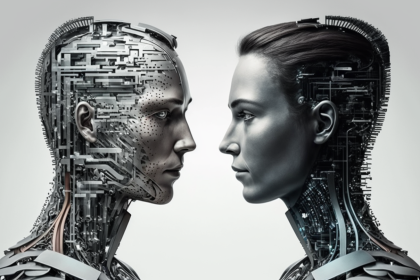The Enigma Machine: An Age-old Game of Cryptography and Codebreaking
The game of cryptography and codebreaking has been played for centuries, with each side constantly trying to outsmart the other. A famous example from World War II is the Enigma machine, a complex encryption device used by the Germans to send secret messages. The Allies, led by British mathematician Alan Turing, were eventually able to crack the Enigma code, leading to a significant advantage in the war effort.
Today, we face a new era in the game of cryptography and codebreaking, with the emergence of quantum computing, a technology that has the potential to revolutionize the way we protect and break encrypted data.
The Quantum Leap: How Quantum Computing Changes the Game
Quantum computing is a radically different approach to computing, leveraging the principles of quantum mechanics to solve complex problems faster than classical computers. While classical computers use bits to represent information as either a 0 or 1, quantum computers use quantum bits, or qubits, which can represent both 0 and 1 simultaneously thanks to a phenomenon called superposition.
This unique property allows quantum computers to perform multiple calculations at once, exponentially increasing their computational power. As a result, quantum computers have the potential to crack encryption schemes that are currently considered unbreakable, such as RSA and elliptic curve cryptography.
The Imitation Game: Preparing for Quantum Threats to Cryptography
Just as Alan Turing and his team raced against time to crack the Enigma code, today’s cryptographers are in a race against the clock to develop new encryption schemes that can withstand quantum attacks. This effort, known as post-quantum cryptography, aims to create cryptographic algorithms that are resistant to both classical and quantum computers.
Several post-quantum cryptographic algorithms have been proposed, including lattice-based, code-based, and multivariate cryptography. These algorithms leverage mathematical problems that are believed to be difficult for both classical and quantum computers to solve, ensuring the security of encrypted data even in the age of quantum computing.
Cryptography’s Constant Evolution: The Future of Quantum-Resistant Encryption
As the development of quantum computers continues to progress, the need for quantum-resistant encryption will only become more critical. It is essential for governments, businesses, and individuals to stay ahead of the game, investing in research and development of new cryptographic schemes that can withstand quantum threats.
This ongoing game of cat and mouse between cryptography and codebreaking is a testament to the constant evolution of technology and the tireless efforts of those dedicated to protecting our most sensitive information. Just as Alan Turing and his team persevered in breaking the Enigma code, today’s cryptographers must continue their work to ensure the security of our digital world in the face of quantum computing.
Discover more insightful content here. A brand of TalkAboutTech.










